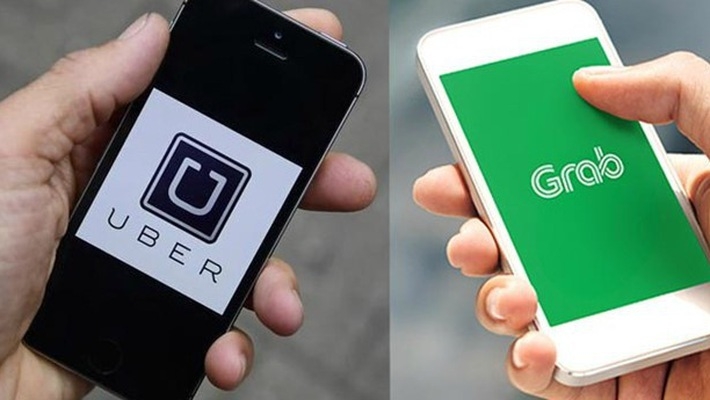Grab Vietnam responds to fine by Singapore competition watchdog
 |
| Grab's acquisition of Uber's Southeast Asian operations is under investigation across the globe |
Grab acquired Uber’s Southeast Asia business in March, but the Competition Commission of Singapore (CCCS) has declared the deal “anti-competitive” following an investigation into its impact on Singapore. CCCS levied a combined fine of $9.5 million on Uber and Grab, but it will not unwind the deal.
Jerry Lim, country head of Grab Vietnam, said that they are glad that CCCS has completed its investigations on the Grab-Uber transaction and did not require the unwinding of the transaction. Following the Philippines Competition Commission (PCC)’s approval of the legality of the Grab-Uber transaction in July 2018, the decision by the CCCS in not overturning the transaction marks yet another step in the right direction in appreciating the benefits brought about by such a transaction.
Grab proceeded with the transaction in the good faith that there is no breach of competition laws. The key point of contention lies in the difference in the authorities' and Grab’s definitions of what constitutes a competitive playing field.
According to Lim, established taxi operators, among other transport operators, remain strong competitors to ride-hailing players like Grab in all countries where it operates. Customers have the choice to switch to other forms of transport, including street-hails and alternative apps, and drivers have the choice to switch to join other companies if prevailing conditions such as pricing and income are not favourable to them.
In Vietnam, taxi companies such as Mai Linh and Vinasun have always considered ride-hailing players as their direct competitors. Vinasun and Mai Linh are two of the largest taxi companies in Vietnam who have invested in their own car and taxi ride-hailing mobile applications to compete.
Under Decision 24, the Vietnamese government has granted e-hailing pilot licences to nine other companies, including established taxi companies, to operate car e-hailing services in five cities and provinces. All companies approved by the pilot licence were given equal opportunity to compete and innovate to maximise the efficiency of public transportation with the best interests of consumers at heart.
He stressed that unlike in Singapore and the Philippines, in Vietnam, Grab can only provide transport connecting services by entering into contracts with eligible transport cooperatives and enterprises, and such transport cooperatives and enterprises will provide transport services to the passengers who book a ride using the Grab app platform. As a technology company, Grab does not own vehicle fleets nor contract directly with drivers.
The Vietnam Competition Authority (VCA) is carrying out the antitrust investigation into Grab’s takeover of Uber’s business in Vietnam. The investigation is estimated to take 180 days, starting from May 18 to November. Once it is completed, VCA will transfer the case to the Vietnam Competition Council for a resolution.
The representative of Grab Vietnam stated that competition dynamics, market conditions, and the regulatory landscape in Vietnam is unique in Southeast Asia, which Grab believes the VCA will take into consideration in its investigation.
What the stars mean:
★ Poor ★ ★ Promising ★★★ Good ★★★★ Very good ★★★★★ Exceptional
Related Contents
Latest News
More News
- Vietnamese businesses diversify amid global trade shifts (February 03, 2026 | 17:18)
- Consumer finance sector posts sharp profit growth (February 03, 2026 | 13:05)
- Vietnam and US to launch sixth trade negotiation round (January 30, 2026 | 15:19)
- NAB Innovation Centre underscores Vietnam’s appeal for tech investment (January 30, 2026 | 11:16)
- Vietnam moves towards market-based fuel management with E10 rollout (January 30, 2026 | 11:10)
- Vietnam startup funding enters a period of capital reset (January 30, 2026 | 11:06)
- Vietnam strengthens public debt management with World Bank and IMF (January 30, 2026 | 11:00)
- PM inspects APEC 2027 project progress in An Giang province (January 29, 2026 | 09:00)
- Vietnam among the world’s top 15 trading nations (January 28, 2026 | 17:12)
- Vietnam accelerates preparations for arbitration centre linked to new financial hub (January 28, 2026 | 17:09)

 Tag:
Tag:




















 Mobile Version
Mobile Version